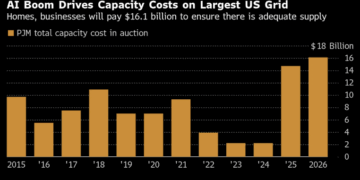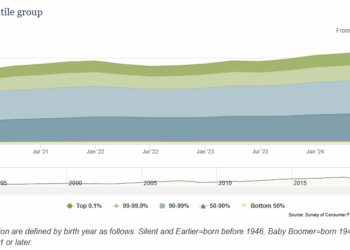In the rapidly evolving landscape of corporate finance, embracing technological advancements is crucial for success. As we step into 2024 and beyond, two groundbreaking technologies, Artificial Intelligence (AI) and Blockchain, are poised to reshape financial management. This blog post dives deep into the profoundly positive influence of these trends, with a keen focus on how they will revolutionize businesses. From streamlining processes through increased automation to enhancing transparency via Blockchain, these transformative technologies promise a more efficient, secure, and cost-effective future for financial professionals.
Accounting Software Trends: Embracing the Future
1. AI-Powered Automation: Streamlining Financial Operations
1.1 Data Entry and Processing
AI’s prowess in automation extends to data entry and processing, alleviating the burden of labor-intensive tasks. Machine learning algorithms swiftly and accurately handle voluminous financial data, minimizing the risk of human error and freeing up professionals for more strategic endeavors. This empowers businesses to operate with greater precision and efficiency.
“I has the ability to greatly improve accounting performance, accuracy, and insight.” – M Van Horn
1.2 Reconciliation and Reporting
AI’s real-time data analysis capabilities enable it to identify discrepancies, reconcile accounts, and generate comprehensive reports with unparalleled speed and precision1. This efficiency equips organizations to make informed decisions promptly, gaining a competitive edge in the market.
2. Improved Decision-Making: Unleashing Data Insights
2.1 Predictive Analytics
AI’s predictive analytics capabilities unlock invaluable insights for decision-makers. By analyzing historical data and identifying patterns, AI algorithms can predict customer behavior, market trends, and optimize inventory levels. This foresight empowers businesses to proactively adjust strategies and capitalize on emerging opportunities.
2.2 Investment Opportunities
AI’s data-driven insights extend to investment decisions. Through sophisticated analysis of market conditions and company performance, AI can identify promising investment opportunities. This empowers financial professionals to make well-informed investment choices, potentially increasing returns and reducing risks.
3. Enhanced Risk Management: Safeguarding Financial Assets
3.1 AI-Powered Fraud Detection
AI is a formidable ally in the battle against financial fraud. By scrutinizing financial data for patterns and anomalies, AI can swiftly detect potentially fraudulent transactions3. For instance, it can flag unusually large payments to unknown vendors, signaling a potential red flag for further investigation.
3.2 Cybersecurity and Market Volatility
AI’s risk mitigation capabilities extend to cybersecurity and market volatility. By analyzing vast datasets, AI can pinpoint vulnerabilities and predict market fluctuations. This empowers organizations to fortify their cybersecurity measures and adopt proactive strategies for managing market risks.
4. Improved Compliance: Navigating Regulatory Landscapes
4.1 Financial Reporting
Navigating the complex web of financial regulations can be daunting, but AI simplifies the process. AI-driven software ensures that businesses remain compliant with regulations governing financial reporting. This not only reduces the risk of costly fines and penalties but also promotes transparency in financial operations.
4.2 Data Privacy
Data privacy is another critical aspect of compliance. AI’s data analysis capabilities enable organizations to manage and protect sensitive data more effectively, ensuring compliance with stringent data privacy regulations. This enhances customer trust and minimizes legal risks.
5. Enhanced Transparency: The Blockchain Advantage
5.1 Immutable Transaction Records
Blockchain technology, often associated with cryptocurrencies, offers an unprecedented level of transparency. It creates immutable records of all financial transactions, making it impossible to alter or delete past entries. This tamper-proof ledger fosters trust among stakeholders, including investors, regulators, and customers.
5.2 Supply Chain Traceability
Beyond financial transactions, Blockchain enhances transparency in supply chains. It enables end-to-end traceability of products, ensuring authenticity and quality assurance5. This transparency is particularly valuable in industries with complex supply networks, such as manufacturing and food production.
6. Reduced Costs: The Economic Edge
6.1 Operational Efficiency
AI and Blockchain not only enhance security and transparency but also drive operational efficiency. Through automation and streamlined processes, organizations can significantly reduce operational costs. This newfound efficiency strengthens their competitive edge in the market.
6.2 Risk Mitigation
Cost reduction isn’t limited to operational efficiency; it extends to risk mitigation. By proactively identifying and addressing risks, organizations can avoid costly incidents, such as fraud or cybersecurity breaches. This prevention saves both financial resources and reputation.

Examples of AI and Blockchain in Financial Management Today
AI-Powered Fraud Detection
AI is currently being utilized to detect fraudulent transactions. By analyzing financial data for patterns and anomalies, AI can identify transactions that deviate from the norm, such as unusually large payments to unknown vendors.
Blockchain-Based Trade Finance
Blockchain is revolutionizing trade finance by automating transactions like letters of credit and supply chain financing. This not only reduces costs but also streamlines processes, leading to improved efficiency.
AI-Powered Investment Management
AI is actively involved in managing investment portfolios. By analyzing market data and identifying potential opportunities, AI assists investors in making data-driven decisions, ultimately leading to improved returns.
Blockchain-Based Payments
Blockchain is creating a more secure and efficient way to make payments. By leveraging cryptographic principles, it ensures the integrity and authenticity of transactions, reducing the risk of fraud and enhancing cash flow management.

Embracing the Future
The future of financial management is dynamic, and AI and Blockchain are at its vanguard. By adopting these trends, businesses can streamline operations, make data-driven decisions, fortify risk management strategies, ensure compliance, and boost transparency. This isn’t just about staying relevant; it’s about shaping a future that’s efficient, secure, and transparent. The time to invest in these accounting software trends is now.
For more in-depth insights on the latest trends in financial management, explore the resources below:
The path to financial management excellence is illuminated by AI and Blockchain. Embrace these transformative trends, and let your financial prowess soar!

















































